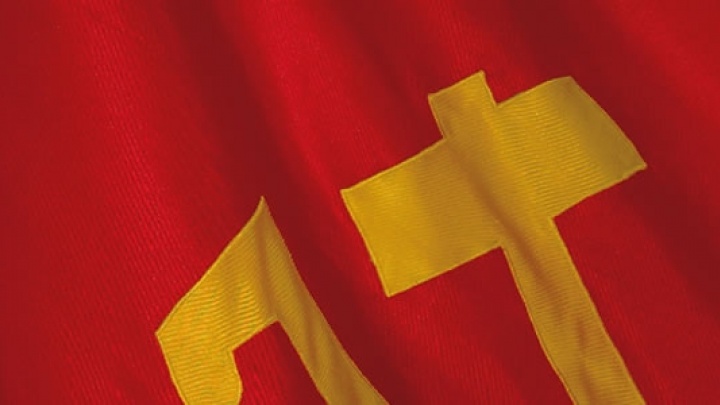Translated "Avante!" article by Luis Carapinha, Member of the PCP Internationa Department
Less than 20 years was the necessary time to History reduce unto dust the “ The End of History” prophecy, which set as a thesis, brightened the dominant thought within the politic and intellectual circles. Currently, objurgated by Francis Fukuyama, its celebrated author. The North-American ideologue, one of Reagan’s disastrous doctrine main brains, recently published an article he entitled “The Future of History”(in Foreign Affairs, Jan/Feb 2012). During the capitalist Great Recession times and its stagnation and fall turbulent horizon, an issue that restlessly is posed to Fukuyama, who, in due time, held off from the neoconservative current, of which he had been an exponent, as if “ liberal democracy can survive the mid-class decline”. In fact, it’s a long time, since, at the beginning of the 90, when the socialist field was in demolition and the USSR was hastily moving towards its ending, in which the triumphant capitalism, under the ingenious “ liberal democracy” vestments proclaimed itself the ultimate History formula, sweeping away with a sole blow, that perverse spirit known as class struggle. A brief lapse of time in History ( only but two decades), that far from confirming its splendorous ending, watched, otherwise, its errant apostle ejection.
A minor issue, but his pirouette trajectory is worthy of attention. Riding such a beyond measure triumphant success as well as nonsensical, Fukuyama was among imperialism’s ideas producers which, in the USA, profiting from the September 11, 2001, helped to give the motto for the Afghanistan’s and Iraq’s invasions. Followed by a transnational court of acolytes which, directly before the cameras or at their computers on their desks, never hesitated in raising his campaign clumsy boots…Upon the swamp, Fukuyama relegates neo-conservatism, in a mainstream typical course. He hits Rumsfeld, turns away from Bush and becomes, an Obama’s elector, ultimately. Ignoring what happened, the hegemonic power crude apology becomes wrapped up amid the tortuous myth of a “ realistic wilsonionism”, according to which the USA would only but use military force as an ultimate recourse. The Nobel Prize president in office interventionist cadastre is sufficient to gauge on that pretext’s validation. Concerning Wilson, it is enough to remind it was during his office, the USA committed troops unto Russia, in 1918, in order to, as Churchill admitted, help to drown within its own cradle, the Bolshevik Soviet revolution.
The central dilemma which concerns both Fukuyama and the class interests they represent has to do with the capitalism ideological crisis development and the evident narrowing of its social foundation. At a critical level, the weakening of the legitimacy and sustainability of the dominant classes’ power obliges Fukuyama to “return” to History.
In the mentioned article, he points out the “ inequality massive increase” within the USA, during the last generation and the wealth concentration trend ( recalling that if in 1974, the 1% of the rich represented 9% of the USA’s GIP, in 2007 it was equivalent to 23.5% ). As he obviously admits, inequality will carry on worsening within the USA - and within the capitalist world. Symptomatically, he imputes to globalization - and to China - the wealth polarization process blame and the so-called mid-class decay ( what heavily indicates a lot of what is being prepared in imperialism contention escalade before China and its ascent’s placed challenges).
The new dominant paradigm is synonymous of the already visible degradation of the bourgeoisie democracy’s own framework, pre-announcing times of greater instability and uncertainty.
Fukuyama ( and the social-democracy in search of a direction ) look for a new story which might collect the system’s consensus and stability, in risk. Anything that might be used to exorcize the revolutionary perspective and demolish the inevitable path of the persistent struggle against capitalist exploitation, in direction unto socialism.
